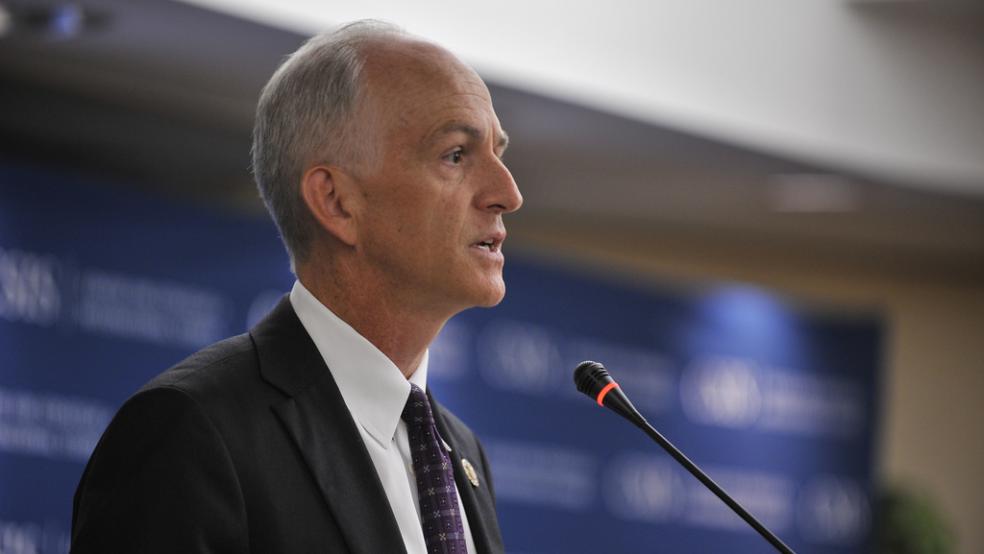Calling for military cuts doesn’t often win a lawmaker any friends in Congress. But that doesn’t seem to bother Rep. Adam Smith of Washington, the top Democrat on the House Armed Services Committee who’s establishing himself as the voice of dissent on defense issues--at least compared with many of his colleagues on the panel.
Smith is taking some contrarian yet budget-conscious views opposed by most House Republicans and even many Democrats, by advocating for another round of base closures to calling for reductions to procurement spending that the Pentagon says are necessary.
Related: As the Unemployed Twist in the Wind, Defense Contractors Get a Safety Net
“One of the things we need to do is accept some of these cuts,” Smith said last week at an event hosted by the Center for Strategic and Budgetary Assessments. “The one thing that we’re doing right now that is making it worse, that we can fix, is that we are fighting every single one of these cuts. We are avoiding all of these difficult decisions.”
As hard as those choices may feel now, Smith said, they’re going to be even tougher once the automatic spending cuts known as sequestration return in October of next year, the beginning of fiscal 2016. The Defense Department’s budget proposal for fiscal 2015 calls for a 4 percent, or $3.8 billion, reduction in acquisition spending. That amount is estimated to balloon to tens of billions when sequestration resumes.
Smith is also advocating for another round of military base closures, or BRAC, which has become the third rail in defense politics. To say that most lawmakers are opposed to BRAC is an understatement. Last year Congress prevented the Pentagon from spending money just to consider another round of BRAC, mainly because congressional districts have little to win but almost everything to lose when it comes to base closures like the ones that took place in the 1990s and in 2005.
“Another BRAC is necessary,” Smith said last week, adding that he’ll offer an amendment calling for just that when the House considers an annual defense-policy bill later this month. He acknowledged that his proposal will undoubtedly get “crushed,” but he said it’s a reality that needs to be addressed, even if it that just means starting a conversation. “We need it in order to preserve many of those programs that we’re all fighting to preserve.”
Related: Scramjet: DOD’s New Screaming Fast Hypersonic Weapon
While many of Smith’s proposals are progressive and aligned with the Pentagon’s position, he hasn’t toed the administration’s line on all issues. A $56 billion White House initiative, half of which would go to the Defense Department to boost readiness, hasn’t received much support from Smith, who said it’s unlikely Congress will agree to that kind of spending.
Smith has also reached across the aisle on some defense issues, albeit not ones that would have a major impact on spending. A forthcoming amendment of his, based on legislation introduced by Rep. Jeff Denham (R-CA), would make undocumented immigrants who entered the U.S. before the age of 15 eligible for enlistment in the armed forces.
Issues like that one are likely to remain on Smith’s plate, even if Congress rejects them. Last year, Smith focused on getting support for provisions backed by the Obama administration that would allow for loosening restrictions on the transfer of Guantanamo detainees. His efforts were unsuccessful, so he’s renewing that push this year when the House takes up the $592.9 billion defense-policy measure.
The House is likely to vote on that bill, along with scores of related amendments, before the end of the month. Doing so will quantify just how many lawmakers in the chamber share Smith’s views.
Top Reads from The Fiscal Times:





